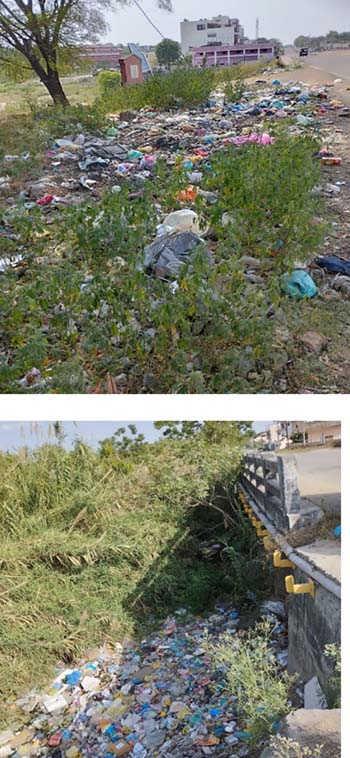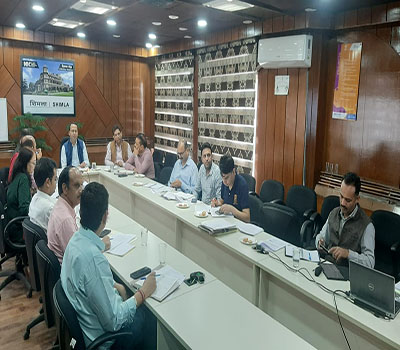SHIMLA: Three years down the line Himachal Pradesh has collected 275,000 kg of banned single use plastic and tarred 227 km of road length by using the plastic under the Buy Back Policy launched in 2019 that has aimed at curbing the usage of single-use plastic in the state.
Under the leadership Director, DEST&CC , Shri DC Rana, and with the active participation of Urban Local Bodies, Rural Development, and HP State Pollution Control Board, Himachal Pradesh has made remarkable progress in managing plastic waste to some extent, though one still can see plastic in many towns and roadsides.
Through the collective efforts of the government and the citizens, as many as 2,75,000 kg of single-use plastic has been collected and disposed of responsibly under the Buy Back Policy. This initiative not only addresses the menace of plastic pollution but also encourages a circular economy by incentivizing the recycling of plastic waste.
One of the major milestones achieved during this journey is the innovative use of plastic waste in road construction.
Inspired by the Chief Minister's announcement on 5th June 2023, the HP PWD Department has undertaken the task of constructing plastic roads in each PWD Sub-division across the state.
“So far, 227 km of plastic roads have been completed, and the commitment to construct over 230 km more showcases the dedication of the government towards eliminating plastic waste and its sustainable end use”, said Rana, while chairing the meeting of the officers to review its achievement.
He said Department of HPPWD & UD Department also facilitated the purchase of plastic waste collected under the policy.
By offering competitive rates of 35/- per kg for shredded plastic and 15/- per kg for un-shredded plastic, the state ensures that plastic waste is put to constructive use while also promoting waste management practices.
A pivotal decision taken during the meeting was to enforce a complete ban on the use of plastic items in Himachal Pradesh.
Working in consultation with Plastic manufacturing industries, the government has embarked on the task of formulating a comprehensive policy within a year.
The aim is not only to eliminate single-use plastic but also to promote the exploration and adoption of eco-friendly alternatives, Rana said.
The state acknowledges the importance of collaboration and has encouraged plastic industries to seek substitutes, leading the way towards a greener and cleaner future.
Another significant aspect of this success story is the implementation of the Extended Producer Responsibility (EPR).
By actively engaging with Producers, Importers, and Brand Owners, Himachal Pradesh has demonstrated a proactive approach to tackle plastic waste at its source.
This responsible approach ensures that those who produce and distribute plastic products take responsibility for their waste management and recycling.
To make this transformation sustainable, the government has called upon all officials of various departments to raise awareness among the public.
Through targeted campaigns, promoting alternative materials, and strict enforcement of the ban under the H.P. Non-Biodegradable Garbage (Control) Act, 1995, the state aims to foster a culture of responsible waste management and encourage citizens to be active participants in this environmental revolution.
Himachal Pradesh's success is laudable but it has mile to go before Himachal becomes a complete single-use plastic free state.
The state government needs to rope in active NGOs like Integrated Mountain Initiative(IMI) to achieve the target of successful sustainable development goals to build a cleaner, greener and safer future for generations to come.







